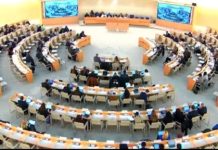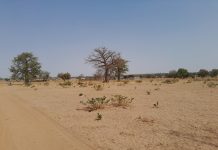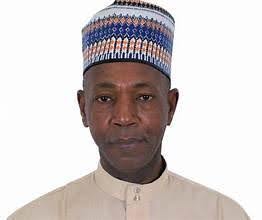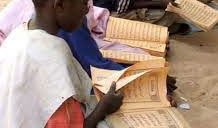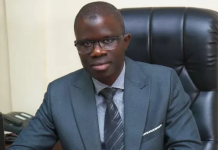By Kebba AF Touray
Lands Minister Hamat NK Bah has informed members of the National Assembly of the ongoing efforts to construct district courthouses across the country.
Mr. Bah reported this development while reacting to a report presented by the Lands Committee in line with Standing Order 100, on Tuesday, September 24, 2024.
The Committee’s report which was developed after they visited the offices of Regional Governors, Area and Municipal Councils, the Ombudsman, and the IEC, was tabled, debated, and adopted by the plenary. Subsequently, the adopted report was submitted to the relevant entities such as the Ministry of Lands, Regional Government, the Ombudsman, and the IEC, for consideration and reply.
On the provision of courthouses across the country, Minister Bah said “negotiations are ongoing between his Ministry and the Judiciary, together with the International Development Law Organization, on the possibility of constructing courthouses for Seyfolus.” Since such courthouses are permanent structures, he said central locations will be identified in each district where the courthouses will be built to offer office space for both Seyfolu and scribes for safekeeping of their judgment reports, as well as courtrooms for convening court hearings. He said stationery such as A4 Size paper, printers, and computers among others, will be provided.
The Minister said the submission was copied to the National Assembly Select Committee on Local Government, Lands, and Ombudsman and IEC.
On the reluctance of the government to pay the 25 percent subvention to councils, Mr. Bah said the government is conscious of its legal obligations of providing the annual 25 percent of council development budgets as subvention as contained in Section 128 (B) of the Local Government Act of 2002.
“However, I must admit that while the provision of 25 percent has not been forthcoming, the government has provided D4 Million to each council for the 2024 fiscal year. It is important to point out that the non-provision of the said 25 percent could be attributed to the disparity in the budget calendars between the national budget and that of the Councils,” Minister Bah Admitted.
The said councils’ budget he said spans from October to December by which time the national budget has already been finalized and awaiting execution in the ensuing fiscal year.
“This we intend to address in the not too distant future by revising the Local Government Finance and Accounting Manual of 2009,” he informed the Assembly.
On traditional revenue, he said a meeting of stakeholders had been convened some years ago “where it was agreed and concluded for fees to be collected by the GLMA, rather than councils,” to provide the necessary vaccination of livestock because councils cannot provide such finance; that in the same vein, the routine maintenance of the highways is conducted by the NRA while they have been mandated to collect revenue from the big billboards.
On revenue collection from natural resources, “both Brikama and Kerewan Area Councils are actually benefiting from a 20 percent collection from sand mining by the Geological Department,” Mr. Bah said.
On the provision of mobility for Seyfolu, he said the Ministry has budgeted for vehicles in 2024 fiscal year but unfortunately, he said the National Budget cannot accommodate this and it was eventually discarded by the National Assembly.
At this stage, he implored the legislature to reconsider the plight of Seyfolus and provide the needful in the 2025 budget.
“The government has fully addressed the issue of mobility for all Deputy Governors,” he said.
On the lack of uniforms and mobility for Badge Messengers, Minister Bah told members that the Ministry is aware of this and is looking into it.
“On mobility issues, discussions are underway with potential donor partners for the possibility of providing motorcycles for each Seyfo to ease the movement of badge messengers, who often trek long distances to disseminate vital information to the communities,” he said.



